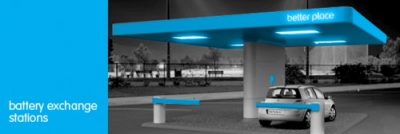 Jordan looks into the advantages of nuclear and we debunk the ‘green’ arguments for going nuclear
Jordan looks into the advantages of nuclear and we debunk the ‘green’ arguments for going nuclear
Whilst Turkey reassesses its own nuclear plans following a devastating earthquake, Jordan is still exploring the pros and cons of going radioactive. A recent meeting held in Amman brought together various NGOs, experts and academics for the 4th International Symposium on Nuclear Energy. Issues such as the Fukushima incident, safety and the need for transparency came up but so did the advantages of nuclear power for water security. So can nuclear power ever really be justified on environmental terms?
Desalination and Nuclear Energy
“A Jordanian nuclear power project that is linked to desalination would be able to effectively address all these issues [fears over safety] and would also be one way in which we could save the Dead Sea, which is shrinking by one to two metres annually,” said Middle East Scientific Institute for Security Director General Sharif.
It’s an interesting argument but not one which holds out to scrutiny. One of the dangers of linking nuclear power to desalination (which is notoriously energy intensive) is that you could end up in a vicious cycle of needing to make more water to cool nuclear reactors so you can make more energy for water desalination. However, this is not the first time that nuclear energy has been proposed as a solution to an environmental problem. In fact, there have been incidents of green activist justifying nuclear power as a viable alternative to fossil fuels.
Nuclear Is Too Slow To Be Useful
Until a couple years ago, the stance that many green campaigners and activists took on nuclear power was a simple one- they were against it. However, renowned environmentalists such as Mark Lynas are now taking a more supportive stance on nuclear power for various reasons. One of the main ones being that the shift away from burning fossil fuels straight to renewable energy isn’t realistic and also that nuclear can cut emissions. Whilst these may be valid arguments, others campaigners such as professor Kevin Anderson who leads the Tyndall Centre for Climate Change Research, insists that nuclear doesn’t add up (environmentally).
Why Ignore Huge Potential Of Renewables?
Anderson argues that even IF there was a way to build safe and carbon-free nuclear reactors, they couldn’t be built fast enough to help us deal with climate change. And when you consider the renewable energy potential – especially of countries such as the UK and Europe- embracing nuclear just doesn’t make sense.
Looking back at the Middle East, the argument applies just as well. Jordan won’t be making electricity from nuclear energy until 2019 and that’s if the contractors don’t experience any delays or problems. What’s more with energy experts themselves telling the region that solar energy is going to be the most important source of energy in the Middle East in the next decade, surely solar and not nuclear is the way forward?
: Image via mediafreedominternational.
For more energy stories from the Middle East see:
Energy Experts Tell Arab World That ‘Solar Is The Future’
Greenpeace Raises More Questions Over Jordan’s Nuclear Plans
UAE Stands By Its Nuclear Plans




I live in Las Vegas, NV. We get our energy from the Hoover Dam. It’s clean. It’s reliable. It’s been going 24/7 for nearly 80 years straight.
No “accidents” that killed numerous people and created a disaster area for years to come. No waste to baby sit and maintain until the end of time itself.
The Hoover dam was chugging away LONG before the first nuclear power plant and it’s was going strong LONG after it closed down… just as it is right now as I type this. The first nuclear power plant had to be dismantled and “relocated” to Hanford, WA… where we are still paying big money to baby sit it… to this very day. It has been proven in every possible way that the COSTS of nuclear power plants far, FAR exceed the return.
The half-life of plutonium is 80 MILLION YEARS BTW. That’s roughly HALF the time were going to have to pay to watch over it and make sure the containers holding it don’t rupture and contaminate the entire planet earth. Gee, I wonder what the bill on 80 MILLION FREAKING YEARS is going to run? That’s just half the bill BTW.
For some reason the ol’ Hoover dam doesn’t get talked about much these days. Nuclear, Solar, Hydrogen cells, giant mirror contraptions…
A dam… who… what…?
Anyways… funny how politics work.
Evil? Toxic? Expensive? Let’s go for it!
A dam? Nah, those thing are boring…
sighhhh…
Your argument on the “vicious cycle of needing to make more water to cool nuclear reactors so you can make more energy for water desalination” is not entirely true. It really depends on the type of desalination technology you use and the way you operate your desalination/power generation cycle. Multi-stage flash (MSF) distillation plants, especially large ones, are often paired with power plants in a co-generation configuration. Waste heat from the power plant is used to heat the seawater, providing cooling for the power plant at the same time. This reduces the energy needed by one-half to two-thirds, which drastically alters the economics of the desalination plant, since energy is by far the largest operating cost of MSF plants as you mentioned.
Could you please provide me with numbers/arguments to why you think “solar … is the way forward”? I’m not saying nuclear is but I don’t think solar is either. If something, natural gas or wind energy are more viable options. First off, PV solar is one of the most expensive energy source currently on the market at a levelized cost of 21 cents/kWh compared to a 9.7 cents/kWh for wind, 6.6 cents/kWh for natural gas combined cycle and 11.3 cents/kWh for advanced nuclear plants (source:http://www.eia.gov/oiaf/aeo/electricity_generation.html). Even if assume that the costs of PV systems are going to come down drastically over the next 10 years how do we solve the intermittency issue given the lack of large scalable batteries that have high discharge rates? How will we be able to provide “RELIABLE” electricity to the market? From where will we generate our electricity on a windless summer night? Even at moderate penetration levels of wind/PV of around 5%, many countries have faced major grid stability issues and blackouts!
I look forward to reading your counterarguments!
Best
Abu Dayyeh